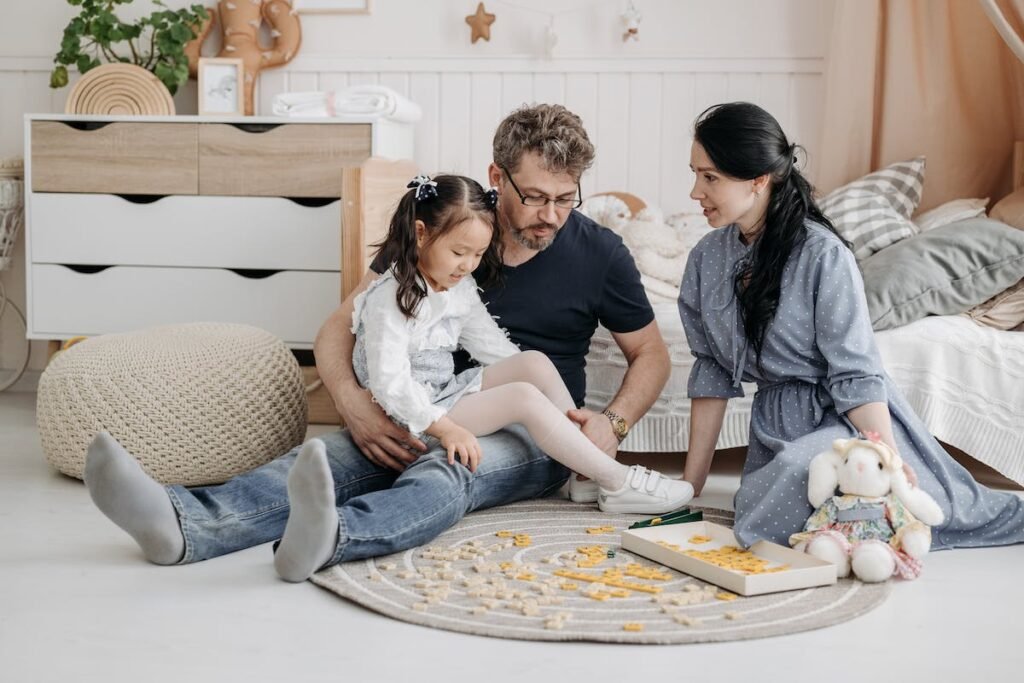Our view of how children develop is firmly rooted in the idea of the family. A stable and loving family serves as a basis for a child’s physical, emotional, and cognitive development. However, for foster children, this fundamental stability is frequently malfunctioning. This disruption can have long-term consequences for their development, exposing children to a variety of issues.
This article looks into the complex world of foster care, looking at how it affects child development in a variety of areas, including emotional well-being and intellectual accomplishment. We will look at the specific problems that children in foster care encounter, the possible long-term effects of their experiences, and the critical role that support systems may play in minimizing these negative impacts.
By focusing light on these challenges, we seek to generate a better understanding of foster children’s needs and advocate for policies and practices that encourage healthy development.
The Ripple Effects of Constant Transitions on Children
Multiple placements and changes in routines can have a significant influence on a child’s sense of security and stability, threatening their capacity to grow emotionally and academically. Frequent changes in caregivers, which are common for children in foster care or those experiencing family instability, can impede the building of healthy relationships, leaving them feeling insecure and vulnerable.
This disruption in their primary caregiver relationships can make it difficult to build trusting interactions with others, resulting in emotional and social problems like as anxiety, depression, and difficulty regulating emotions. Furthermore, a lack of continuous attention and support might impair their cognitive development, making it harder for them to focus, learn, and gain self-esteem.
School transitions, whether relocating to a new school or changing grades, cause major disruptions in a child’s routine. These shifts can cause feelings of uncertainty, worry, and social isolation, particularly if they lack the necessary support and direction to handle these changes.
The stress of school transitions can have a severe influence on academic achievement, as children struggle to adjust to new places, unknown faces, and various learning styles. Finally, limiting disturbances in a child’s life, developing regular caring relationships, and offering support during changes are critical for maintaining a sense of security, stability, and overall well-being.
The Effect of Trauma and Neglect
Deep trauma is frequently a part of a foster child’s journey; this is an awful reality that needs to be addressed. These children have faced a slew of challenges, including physical, emotional, and sexual abuse, as well as acute neglect, all of which can leave deep and lasting scars.
Family separation, which is a terrible experience in and of itself, can deepen existing wounds while also creating new ones. This trauma disturbs the delicate process of brain development, resulting in a series of detrimental repercussions. The brain, especially in its early stages, is extremely pliable and vulnerable to the effects of trauma.
Trauma can affect the shape and function of important brain regions involved in emotional regulation, impulse control, and memory. Children who have suffered trauma frequently struggle with emotional dysregulation, which manifests as outbursts of anger, anxiety, or depression. They may engage in disruptive conduct to express their anguish and perplexity.
Difficulties with focus, information processing, and developing healthy attachments can also result in learning challenges. The effects of trauma transcend beyond the person to the entire community. It is critical to acknowledge that these children are not just ‘broken’ but are victims of situations beyond their control. They require specialized treatment that recognizes their distinct experiences and addresses their distinctive requirements.
The treatment must be multidisciplinary, involving mental health experts, therapists, and educators educated in trauma-informed techniques. By creating a secure and supportive atmosphere, we can assist these children in healing, learning, and thriving, eventually ending the cycle of trauma and neglect.
Positive Impacts of Foster Care
Foster care provides a safe and stable place for children to heal and grow by removing them from dangerous situations. This loving environment provides access to critical healthcare services, addressing any physical or mental health issues that may have gone untreated in their prior residence.
Education is also given first emphasis, ensuring that these youngsters receive the academic support they require to succeed. Aside from these vital services, foster care provides access to a network of support services, such as counseling, therapy, and case management, which help children build resilience and coping skills.
Factors Influencing Child Development in Foster Care
A complex interaction of factors has a significant impact on the development of foster children, with caring and nurturing foster families playing a critical role. These families provide a secure and caring environment, as well as the emotional stability and consistent care that a child requires for optimal development.
Their involvement promotes a sense of belonging, trust, and self-worth, which helps to alleviate the trauma and instability that many children face while entering foster care. This favorable influence goes beyond emotional well-being to include academic performance, social skills, and general development. However, a foster child’s path is not entirely dependent on the foster family.
Social workers serve as critical advocates, offering support, case management, and advice throughout the child’s journey. They work relentlessly to provide children with resources, meet their needs, and advocate for their best interests, all while creating a secure and supportive home.
Minimizing transitions and encouraging long-term placements are critical for a child’s well-being. Changes in caregivers can disrupt emotional relationships, impede development, and heighten feelings of insecurity.
Children can flourish in a secure setting where they can form enduring relationships and forge a strong sense of self when they are placed for an extended period. By emphasizing the child’s needs, developing supportive relationships, and pushing for stability, we can create a system that supports foster children to realize their full potential and build.
Strategies for Improving Outcomes for Children in Foster Care
Improving outcomes for foster children necessitates a multifaceted approach that addresses both the children’s current needs as well as the underlying causes that led to their placement in care. All foster care institutions must implement trauma-informed care strategies.
To do this, it is necessary to acknowledge and treat the deep effects that trauma has on children’s behavior and development, create environments that are secure and nurturing, and offer them tailored support as they work toward healing. It also calls for a change from approaches centered on punishment to ones that are sympathetic and perceptive.
Finally, encouraging reunification wherever possible is critical. While emphasizing the necessity of child safety, it is critical to appreciate the inherent worth of biological connections as well as the significant impact of separation on children’s emotional well-being.
Supporting families with comprehensive services such as substance addiction treatment, counseling, and financial aid can help them overcome obstacles and provide a safe and stable home for their children. By focusing on early intervention, preventative measures, trauma-informed care, and family reunion, we may aim to create a more supportive and nurturing environment that allows foster children to thrive.
Conclusion
Working together, we can make the world a more supportive and nurturing place for foster children, allowing them to overcome their previous experiences and thrive.
Let us remember that every child deserves a secure and loving environment that promotes their development and allows them to attain their full potential. We must endeavor to provide this for foster children, ensuring that their journeys are filled with hope, healing, and the promise of a better future.
Join us in making a difference – become a foster parent through Courage Community Foster Care!







Recent Comments